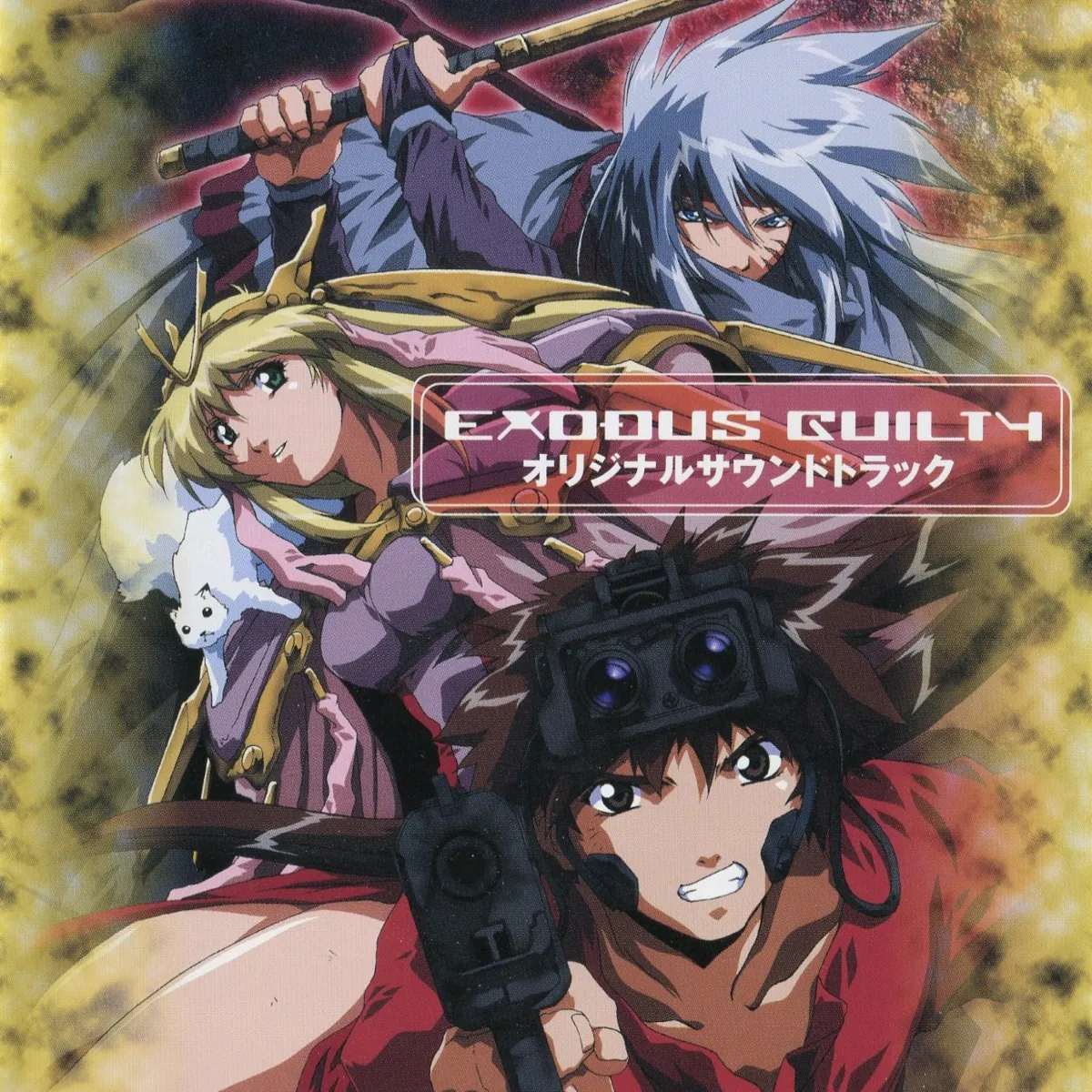Exodus Guilty is a video game that is truly epic in scope. It features lengthy intertwined storylines starring protagonists from current times, 1200 BC, and 13,000 AD. Revelations in one character’s storyline presented clues to solving another character’s conundrums in a different era. This graphic adventure was released in three parts for US audiences by the late Hirameki, though it originally was a one box game in Japan. Most visual novels are under 20 hours, and Exodus Guilty‘s entirety was around 40 hours so this game is epic.
Unfortunately, the soundtrack was anything but epic; 47 tracks compressed into one hour meant a bunch of very short tracks that ended before they even began. In addition, though I liked the music while playing the game, without the context of the game the MIDI-based compositions themselves were forgettable.
The music sounded a lot like generic fantasy JRPG music, which was disappointing given the game’s three distinct settings. Only one third of the game took place in a JRPG fantasy land. The other two thirds of the game took place in modern times and a post-apocalyptic future. These dynamic settings lent themselves to dynamic music, but the music here lacked personality. There were many character themes throughout the soundtrack given the strong cast of unforgettable characters, but those lacked personality as well. The soundtrack ended with the opening theme, but this theme was actually unfamiliar to me, likely because it came from the original Exodus Guilty for PlayStation and not Exodus Guilty: Neos for Dreamcast which is what the Hirameki releases were based off of. This is too bad because this opening was rather atonal and the Neos opening was quite good.
It’s a good thing Exodus Guilty has such a fantastic storyline and killer visuals that bolster such a flat soundtrack. I liked the music while I was playing the game, but listening to the music on its own was boring. Exodus Guilty is a dynamic visual novel with a great storyline that I highly recommend. However, I do not recommend the soundtrack on its own because it felt rushed and the music does not stand on its own outside the context of the game at all.




